Nigerian Dwarf Goat
- February 8, 2024
- 0 comment
The Nigerian Dwarf Goat, often affectionately called the “miniature goat,” is a charming and petite breed that has captured the hearts of many. Originating from West Africa, these goats were introduced to the United States in the early 20th century and have since gained popularity for their small size and friendly disposition. Standing at just 17-20 inches tall at the shoulder, Nigerian Dwarf Goats come in a variety of coat colors, making each one unique in appearance.
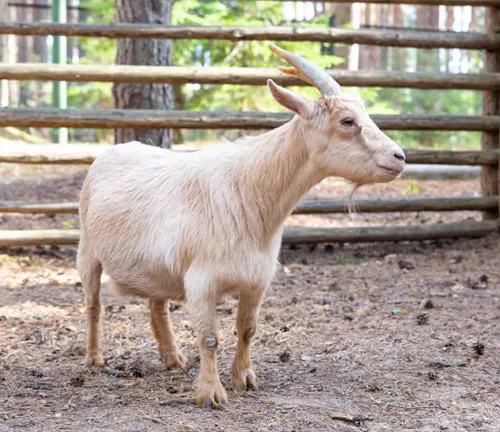
These goats are not only visually appealing but also known for their gentle and affectionate nature, making them a popular choice for families and hobby farmers. Whether you’re considering them as pets, dairy animals, or even land managers, Nigerian Dwarf Goats offer a delightful addition to any farm or homestead.
| Characteristic | Description |
|---|---|
| Size | 17-20 inches tall at the shoulder |
| Coat Colors | Varied, including black, brown, white, and more |
| Temperament | Gentle, affectionate, and easily trainable |
| Lifespan | Average of 8 to 12 years with proper care |
| Purpose | Versatile – used for milk production, pets, and more |
| Shelter Requirements | Well-ventilated, secure, and dry shelter |
| Diet | Balanced diet of hay, grains, and clean water |
| Reproduction | Pregnancy lasts approximately 150 days |
| Kid Care | Newborns often come in twins or triplets |
| Milk Production | High milk production with rich, quality milk |
| Land Management | Excellent at foraging and clearing overgrown areas |
Understanding the Nigerian Dwarf Goat: A Petite Delight
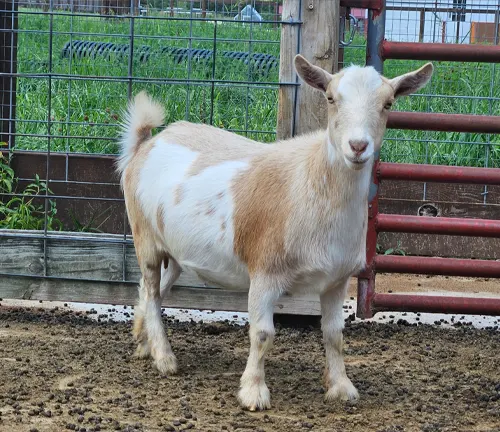
Nigerian Dwarf Goats, often referred to as the “miniature goats” of the goat world, have gained popularity for their adorable size and diverse uses. In this comprehensive article, we will delve into the world of Nigerian Dwarf Goats, exploring their origins, characteristics, care, and benefits of keeping them as pets or livestock.
Origins and History
The origins and history of the Nigerian Dwarf Goat trace back to West Africa. These charming miniature goats, originally found in the regions surrounding the Niger River, were brought to the United States in the early 20th century. Initially, they were imported for research purposes, but their petite size and amiable nature quickly captivated the hearts of farmers and animal enthusiasts.
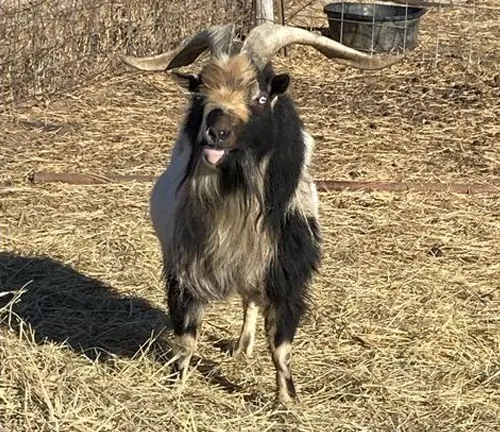
In West Africa, Nigerian Dwarf Goats were traditionally kept for their milk production and as valuable sources of meat. They adapted well to the region’s diverse climates and rugged terrain, showcasing their resilience and adaptability.
Upon their introduction to the United States, Nigerian Dwarf Goats underwent further development and selective breeding to enhance their milk-producing capabilities while maintaining their small stature. Over the years, they have evolved into a beloved breed known for their high-quality milk, friendly disposition, and suitability for various purposes, including as pets, dairy animals, and even land managers.
Physical Characteristics
- Small Stature: Nigerian Dwarf Goats are known for their petite size, standing at an average height of 17-20 inches at the shoulder. This diminutive stature makes them one of the smallest goat breeds in the world. Their small size makes them easy to handle and suitable for smaller properties.
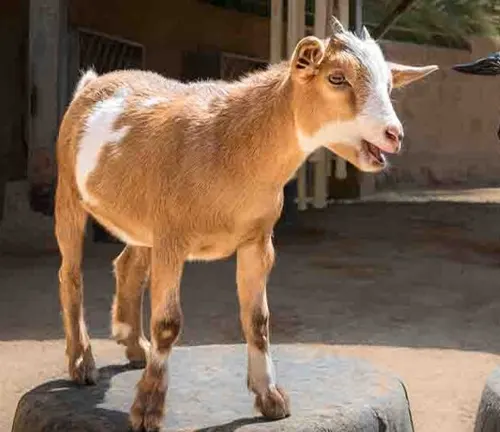
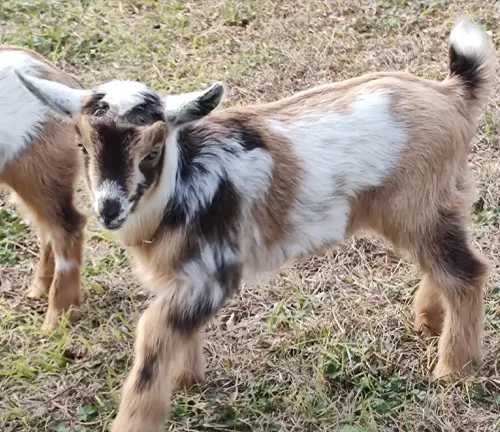
- Coat Variety: These goats showcase a wide range of coat colors and patterns. Their coat can come in various shades, including black, brown, white, and combinations of these colors. The diversity in coat color adds to their charm and individuality, making each goat unique in appearance.
- Friendly and Expressive Face: Nigerian Dwarf Goats are characterized by their friendly and expressive faces. They have bright, alert eyes and often sport small, upright ears. Their facial expressions are known to be endearing, reflecting their amiable and playful nature. This feature contributes to their popularity as pets and companions.
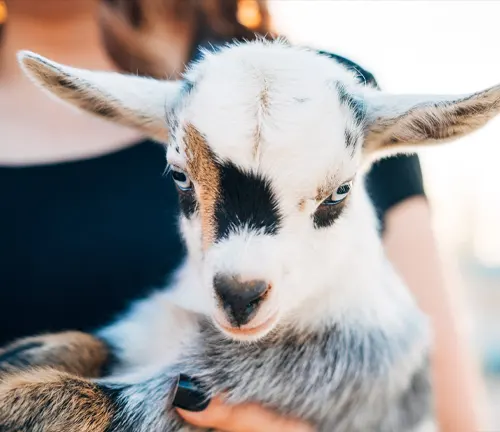
Housing and Care
Shelter Requirements
Nigerian Dwarf Goats require a well-ventilated, secure, and dry shelter to protect them from the elements. Here are some key considerations:
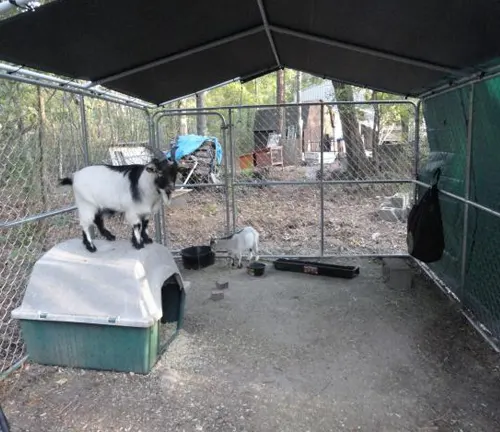
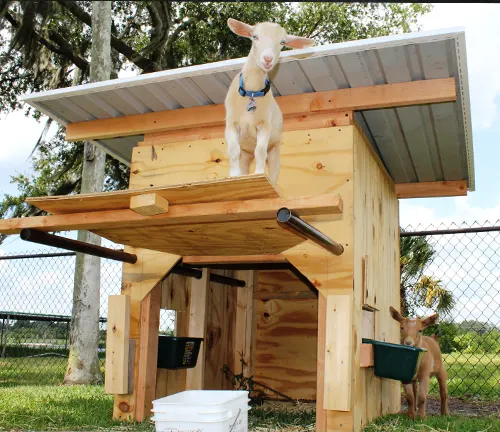
- Ventilation: Ensure proper ventilation to prevent the buildup of moisture, which can lead to respiratory issues. Adequate airflow keeps the shelter fresh and comfortable.
- Security: The shelter should have sturdy walls and doors to keep predators out and provide a sense of security to the goats.
- Dry Flooring: Use materials like straw, hay, or rubber mats on the floor to keep it dry and clean. This helps prevent hoof issues and promotes overall hygiene.
Diet and Nutrition
Proper nutrition is crucial for Nigerian Dwarf Goats. Here are some dietary guidelines:
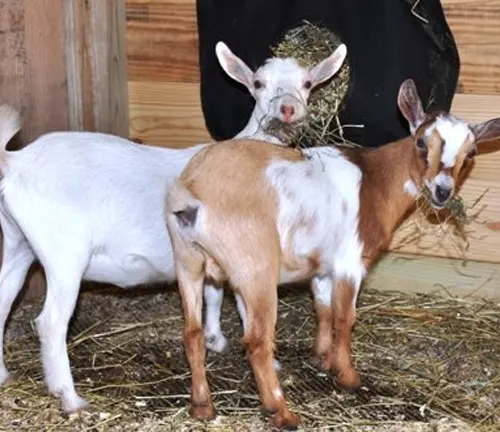
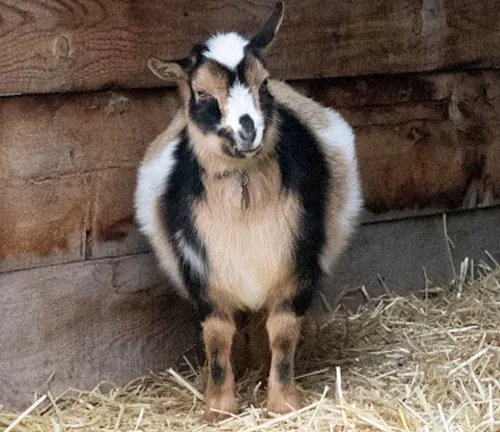
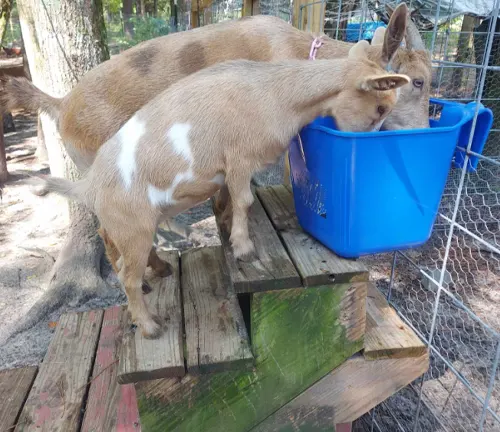
- Hay: Provide high-quality grass hay, such as alfalfa or Bermuda grass, to meet their forage needs. Fresh, clean hay should be available at all times.
- Grains: Supplement their diet with grains, such as goat pellets or grain mixes. Ensure the grains are specifically formulated for goats to meet their nutritional requirements.
- Clean Water: Ensure access to clean and fresh water at all times. Goats can be picky about their water source, so clean containers regularly.
Healthcare
Regular veterinary care is essential. Key aspects of healthcare include.
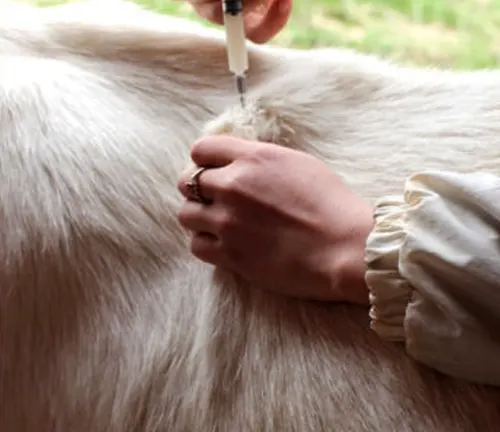
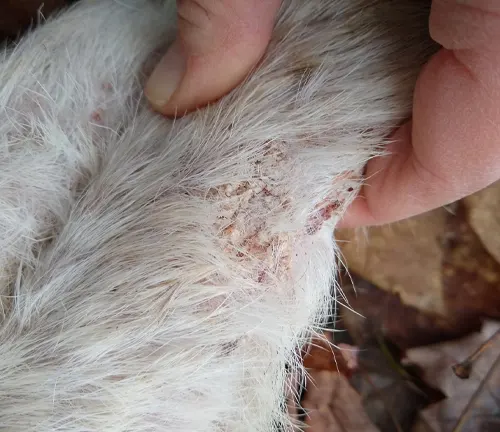
- Vaccinations: Follow a vaccination schedule recommended by your veterinarian to protect your goats from common diseases.
- De-worming: Regularly de-worm your goats to prevent internal parasites. Consult your vet for the appropriate schedule and products.
- Hoof Care: Trim their hooves regularly to prevent overgrowth and related issues.
Social and Exercise Needs: Nigerian Dwarf Goats are social animals. They thrive in the company of other goats and enjoy ample space for exercise and play. Create a secure outdoor area for them to roam and graze.
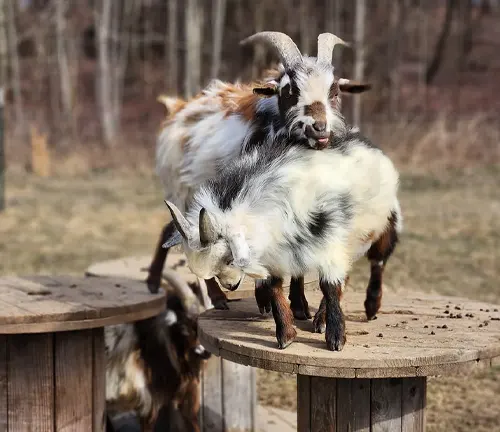
Grooming: Regular grooming helps maintain their coats and overall cleanliness. Brush them to remove dirt and loose hair, and check for any signs of health issues, such as ticks or lice.
Benefits of Owning Nigerian Dwarf Goats
High-Quality Milk Production
One of the primary benefits of owning Nigerian Dwarf Goats is their exceptional milk production. Despite their small size, they produce rich and creamy milk that is high in butterfat and protein. This milk is not only delicious but also versatile, suitable for making cheese, yogurt, soap, and other dairy products. Owning these goats provides a source of fresh and nutritious milk for personal use or small-scale production.
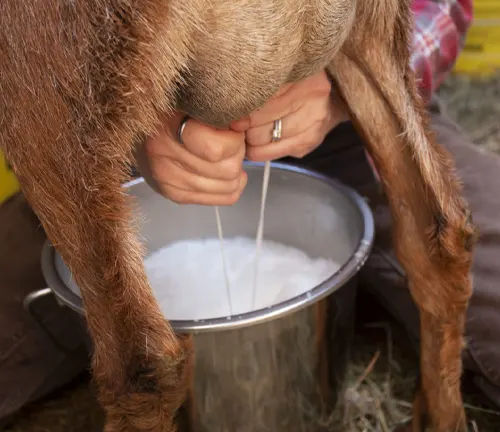
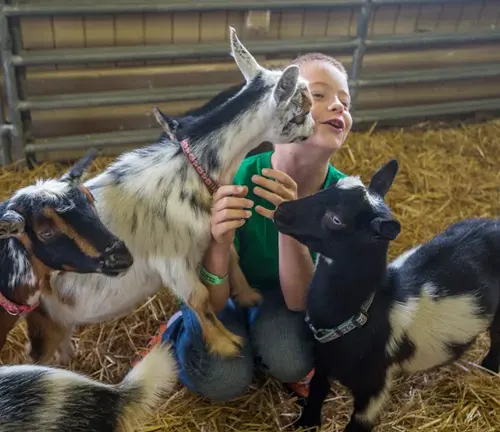
Friendly and Playful Companions
Nigerian Dwarf Goats are known for their friendly and playful nature. They are excellent companions for both adults and children. Their charming personalities make them delightful additions to households and farms. Interacting with these goats can bring joy and entertainment to owners, fostering strong bonds and lasting memories.
Compact Size for Small Spaces
Their petite stature is another significant advantage. Nigerian Dwarf Goats require less space compared to larger goat breeds, making them suitable for small properties, urban environments, or backyard farming. Their compact size allows more people to enjoy the benefits of goat ownership, even with limited acreage.
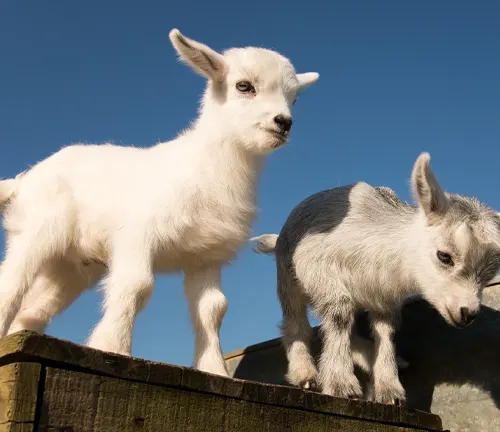
Different Species
The Nigerian Dwarf Goat is a specific breed, and there are no different species of Nigerian Dwarf Goats. However, within the Nigerian Dwarf Goat breed, you can find variations in coat color, patterns, and individual characteristics
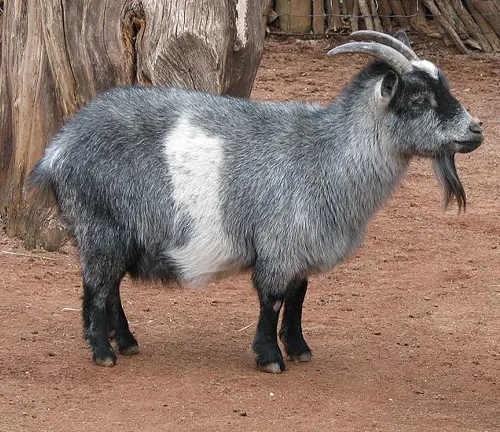
Frequently Asked Question (FAQs)
- What is a Nigerian Dwarf Goat?
Nigerian Dwarf Goats are a distinct breed of dairy goats renowned for their small size and friendly nature. Originating from West Africa, they were initially introduced to the United States for research purposes but quickly became cherished companions and productive members of small farms. - How big do Nigerian Dwarf Goats get?
On average, Nigerian Dwarf Goats stand between 17 to 20 inches tall at the shoulder. Their compact size is one of their defining features, making them suitable for various living environments, including small farms and urban settings. - What are the primary uses of Nigerian Dwarf Goats?
Nigerian Dwarf Goats serve multiple purposes, including milk production, companionship, and land management. Their high-quality milk, rich in butterfat and protein, makes them excellent dairy animals. Their friendly personalities also make them wonderful pets. Additionally, they are skilled at foraging and can assist in land clearing. - Are Nigerian Dwarf Goats suitable as pets?
Yes, Nigerian Dwarf Goats are highly suitable as pets. They are known for their gentle and affectionate nature, making them excellent companions for families and individuals alike. Their small size makes them manageable and easy to care for. - What is the lifespan of Nigerian Dwarf Goats?
Nigerian Dwarf Goats typically have a lifespan of 8 to 12 years, but with proper care and attention to health, some may even live longer. Regular veterinary care and a well-balanced diet contribute to their longevity. - Do Nigerian Dwarf Goats require special care compared to other goat breeds?
While Nigerian Dwarf Goats share many care requirements with other goat breeds, their small size and high metabolism demand specific attention. They need a balanced diet, regular hoof trimming, and protection from extreme weather conditions. - Can Nigerian Dwarf Goats be raised for meat production?
Though Nigerian Dwarf Goats are primarily kept for milk production and companionship, their meat is consumed by some. However, their petite size results in smaller cuts compared to larger meat goat breeds. - What is the typical milk production of Nigerian Dwarf Goats?
Nigerian Dwarf Goats are renowned for their milk production, yielding approximately 1 to 2 quarts of milk per day when properly managed. Their milk is prized for its rich taste and suitability for various dairy products. - What is the best diet for Nigerian Dwarf Goats?
A balanced diet for Nigerian Dwarf Goats includes high-quality grass hay, grains, and clean water. Consult with a veterinarian for specific dietary recommendations based on their age, weight, and purpose. - Are Nigerian Dwarf Goats good for beginners in goat farming?
Yes, Nigerian Dwarf Goats are excellent choices for beginners in goat farming due to their small size, friendly demeanor, and manageable care requirements. They provide a valuable learning experience for novice farmers. - Do Nigerian Dwarf Goats have specific health concerns to watch for?
Nigerian Dwarf Goats may be susceptible to common goat health issues, such as parasites and hoof problems. Regular monitoring and proactive veterinary care can help prevent and address these concerns. - How often do Nigerian Dwarf Goats need to be de-wormed?
De-worming frequency depends on various factors, including local parasite prevalence and individual health. Consult your veterinarian to establish a de-worming schedule tailored to your goats’ needs. - What type of shelter is suitable for Nigerian Dwarf Goats?
Provide a well-ventilated, secure, and dry shelter to protect Nigerian Dwarf Goats from extreme weather conditions. Ensure adequate ventilation to prevent respiratory issues. - Are there any specific regulations or permits required to own Nigerian Dwarf Goats in certain areas?
Regulations regarding goat ownership can vary by location. It’s essential to check with your local authorities or agricultural extension office to understand any specific requirements or permits needed to own Nigerian Dwarf Goats in your area. - Can Nigerian Dwarf Goats be kept with other livestock?
Nigerian Dwarf Goats can coexist with other livestock, such as chickens and horses, given proper introductions and adequate space. However, always monitor their interactions to ensure the safety and well-being of all animals involved. - Do Nigerian Dwarf Goats have specific heat or cold tolerance requirements?
Nigerian Dwarf Goats are generally adaptable to various climates but may require additional shelter and protection during extreme heat or cold. Providing shade and insulated shelters can help them stay comfortable in challenging weather conditions. - How do you train Nigerian Dwarf Goats?
Training Nigerian Dwarf Goats involves positive reinforcement and patience. They respond well to treats and gentle handling. Consistent training can teach them basic commands and behaviors. - What should I consider when breeding Nigerian Dwarf Goats?
Breeding Nigerian Dwarf Goats requires careful planning, including selecting suitable breeding pairs, monitoring the breeding process, and providing proper prenatal and postnatal care for the does and kids.


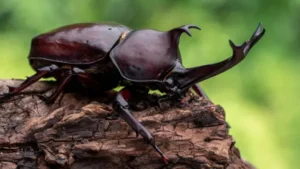
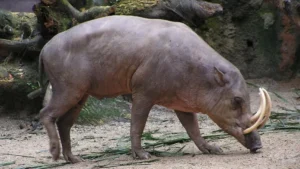

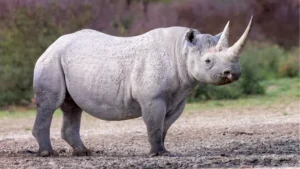


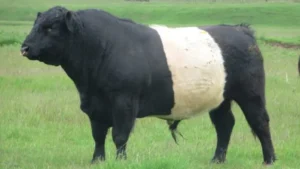

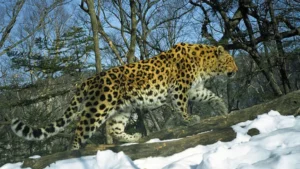
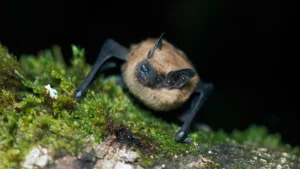
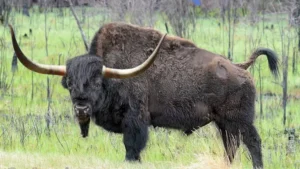
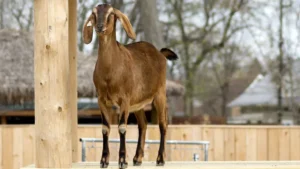
Leave your comment